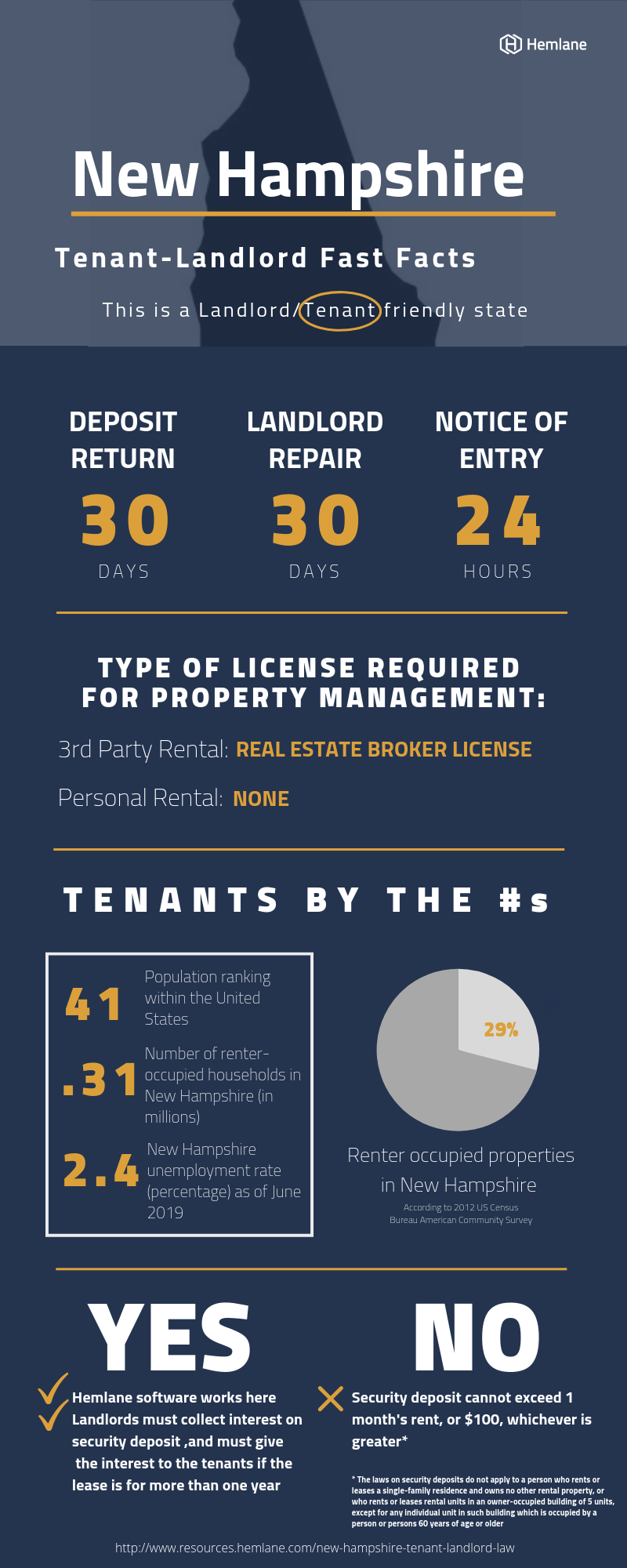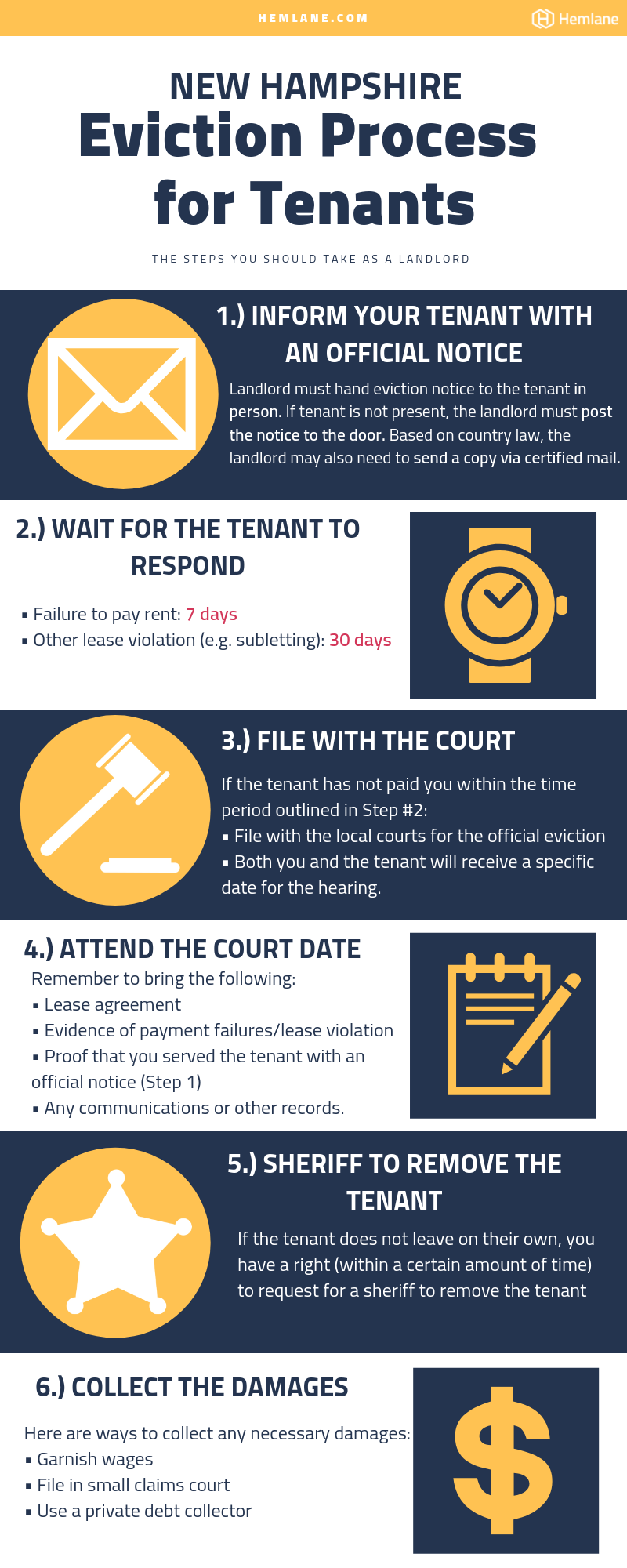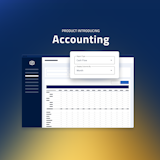New Hampshire Tenant-Landlord Law

Fair Housing
The Fair Housing Act was created in order to ensure that everyone is treated equally during the housing process. It protects tenants from discrimination when seraching for a rental property. At the federal level the Fair Housing Act protects the following classes…
- Race
- Color
- National Origin
- Religion
- Sex
- Familial Status
- Disability
Learn about fair housing at the federal level here /landlord-must-know-fair-housing/
In addition to the federal Fair Housing Act protections, New Hampshire also protects...
- Age
- Marital status
- Sexual orientation
(NH RSA Section 354-A:10).
Security Deposits
- Security deposit maximum: A landlord cannot demand a security deposit that is greater than one month's rent or $100, whichever is greater. (§§ 540-A:6(I)(a))
- Security deposit interest: A landlord who holds a security deposit for a period of one year or longer shall pay to the tenant interest on the deposit at a rate equal to the interest rate paid on regular savings accounts in the New Hampshire bank. (§§ 540-A:6(IV))
- Keeping the security deposit in seperate bank account: Landlord may not combine personal funds with deposit funds. Landlord may combine all security deposits in a single account. (§§ 540-A:6)
- Disclosing information of bank account: Landlord shall provide to the tenant the name of any bank, savings and loan association, or credit union where his security deposit is on deposit, the account number, the amount on deposit, and the interest rate on the deposit and shall allow the tenant to examine his security deposit records. (§§ 540-A:6(IV)(b))
- Permitted uses of the security deposit: (§§ 540-A:7(II))
- If there is unpaid rent due.
- If there are lawful charges under the lease that are unpaid.
- If the tenant is required under the lease agreement to pay for an increase in real estate tax.
- Deadline for returning the deposit: Must be returned within 30 days of tenancy termination. (§§ 540-A:7(I))
- Receipt of security deposit: Cash deposits require a signed receipt stating the amount of the deposit and specifying the institution where the deposit will be held. Receipt not needed for check. (§§ 540-A:6(I)(b))
- Failure to return deposit to tenant: Landlord will owe the tenant 2x amount of the security deposit plus any interest due, less any payments made and any charges owing for damages, unpaid rent, or share of real estate taxes. Landlord shall not be liable if the tenant fails to notify the landlord of his new address. If the deposit goes unclaimed after 6 months from the termination of the tenancy the landlord can keep it. (§§ 540-A:8)
Rent and Late Fees
- Due date for rent: Must be specified in lease agreement between tenant and landlord.
- Notice for rent increase: Rent increase notice must be given at least 30 days prior to the effective date of the increase. (§§ 540:2(IV))
- Grace period and late fees: No law, must be specified in lease agreement.
- Tenant ability to not pay rent: If the landlord fails to provide essential services, and does not remedy within 14 days of notice. (§§ 540:13(d))
- Tenant ability to deduct rent: No law specifying whether or not tenant may make own repair's on dwelling unit and deduct rent.
Notices and Entry
- Notice to terminate fixed end lease: 30 days. (§§ 540:3(II))
- Notice to terminate yearly lease with no end date: 30 days. (§§ 540:3(II))
- Notice to terminate month-to-month lease: 30 days. (§§ 540:3(II))
- Notice to terminate week-to-week lease: 30 days. (§§ 540:3(II))
- Notice to terminate lease for non-payment: 7 days, tenant may remedy by paying rent in full before the 7 day period along with a fee of $15. The tenat may only use this action three times within a 12-month period. (§§ 540:3(II)) & (§§ 540:9)
- Notice to terminate for lease violation: For all residential tenancies, 30 days' notice shall be sufficient in all cases. For nonresidential tenant's neglect or refusal to pay rent upon demand shall result in a 7 days' notice. (§§ 540:3(I)) & (§§ 540:3(II))
- Required notice before entry: Allowed, it is recommended to give 24 hour notice. (§§ 540-A:3(V))
- Entry for showings & repairs: Allowed, with notice during reasonable time. (§§ 540-A:3(V))
- Landlord retaking property without eviction process: Landlord may not do so, $1000 or actual damages will be awarded to tenant, whichever is greater. If self-help eviction was a willful or knowing violation, the fine could be three times (3x) the damages. (§§ 358-A:10)
- Emergency entry: Allowed, granted entry took place within 72 hours of the time that the landlord first received notice of an emergency. (§§ 540-A:3(IV))
- Lockout or utility shut-off permitted: No landlord shall willfully cause a utility shut-off or conduct a lockout. Temporary interruption may be necessary while actual repairs are in process or during temporary emergencies. (§§ 540-A:3(I)) & (§§ 540-A:3(II))
Disclosures
- Landlord duties: No landlord shall willfully violate a tenant's right to quiet enjoyment of his tenancy. (§§ 540-A:2)
- Landlord may not lease a unit: If any of the following issues are present: (§§ 48-A:14)
- If it is infested with pests
- There is defective plumbing
- Unsafe wiring
- Walls, roof or ceiling have leaks or unsafe holes
- Railings in the dwelling unit aren't sound
- There is trash in the common areas where landlord has responsibility for trash removal
- Water or hot water system is faulty
- Gas line leaks
- Heating system does not work properly
- Plaster is falling from walls and ceilings
- Tenant duties: No statute, but the general accepted responsibilities incldue:
- Comply with building and housing codes materially affecting health and safety.
- Keep the premises clean and safe.
- Dispose of garbage and other waste in a manner which is both clean and safe.
- Keep all plumbing fixtures clean, as their condition permits.
- Electrical, plumbing, sanitary, heating, ventilating, air-conditioning facilities must be used in a reasonable matter.
- Not deliberately or negligently destroy, deface, damage, impair or remove any part of the premises or knowingly permit any person to do so.
- Tenant must conduct themselves in a manner that will not disturb their neighbor's peaceful enjoyment.
- Refusal to renew lease: Landlord cannot terminate or refuse to renew a lease if the tenant has filed an official complaint to any board, agency or authority having powers of inspection, regulation or enforcement. Unless the tenant owe 1 week's worth rent or more. If the court finds that the act of the tenant in making a report was primarily intended to prevent any eviction, increase in rent or any substantial alteration in the terms of the tenancy is instituted by a landlord within 6 months after. For more information on the terms see (§§ 540:13-a (I through III)) and (§§ 540:13-b (I through IV))
- Abandonment of tenant's personal property: Landlord shall maintain and take reasonable care of the personal property of a tenant who has vacated the premises, either voluntarily or by eviction, for a period of 7 days after the date upon which such tenant has vacated. After the 7 day limit, the landlord may dispose of the property without notice to the tenant. (§§ 540-A:3(VII))
Eviction Laws

-
When it is failure to pay rent, the tenant has 7 days to pay you otherwise the eviction notice can be filed with the courts.
-
When there is another lease violation (e.g. subletting), the tenant has 30 days to resolve the violation from the point that the eviction notice is served. Otherwise the eviction notice will be filed with the courts.
-
Small claims court limit: The debt or damages, exclusive of interest and costs, cannot exceed $10,000. (§§ 503:1)
-
Eviction cases: Cases involving eviction are heard in the district court. (§§ 540:13)
-
Statute of limitations: Sets the maximum time after an event within which legal action may be taken. Written rental agreements, as well as oral rental agreements both have a 3 year limit. (§§ 508:4)
For more information on New Hampshire Landlord Tenant laws please visit their website here.
As the situation with COVID-19 continues to evolve, the moratorium on foreclosures and evictions will continue to impact millions of rental properties across the country. For the most up to date information on this legislation, as well as to see if your city or county has additional directives in place, please contact your local representative.




